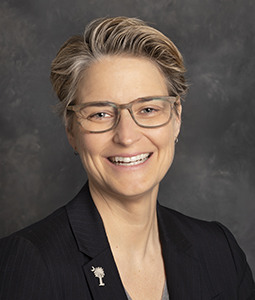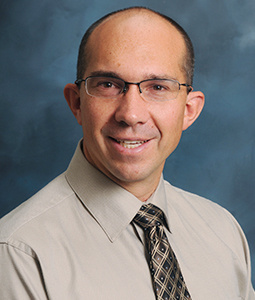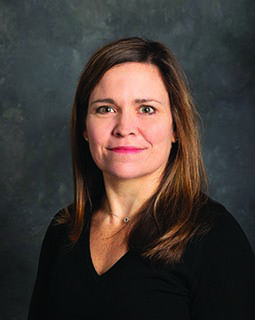| INVESTIGATORS | |
 |
Dr. Alicia Flach PT,DPT is a Clinical Assistant Professor in Exercise Science and teaches the adult neurologic physical therapy, orthotics and prosthetics, and cardiopulmonary curriculum. Additionally, she is a Board-Certified Clinical Specialist in Neurologic Physical Therapy (NCS), Board-Certified Multiple Sclerosis Clinical Specialist (MSCS) and a Parkinson's Foundation Physical Therapy Faculty Scholar. Her research interests are in understanding the relationship of symptoms of people living with degenerative neurologic conditions and physical activity behaviors and assessing movement utilizing wireless sensor technology. Dr. Flach’s research has been funded by the Prisma Health Neurology Foundation, the Parkinson’s Foundation, and the University of South Carolina Office of Research. |
|
|
|
 |
Dr. Stacy Fritz, PhD, PT is a Professor in Exercise Science and the Director of the Physical Therapy Program. Her work focuses on rehabilitation and physical activity for individuals with chronic movement disability and functional limitations. In addition, she works closely with research labs in engineering to investigate innovate ways to measure walking speed and other temporal and spatial parameters of gait. Dr. Fritz’s research has been funded by the National Institutes of Health, American Heart Association, Robert Wood Johnson Foundation, US Army Medical Research and Materiel Command, and the South Carolina Spinal Cord Injury Research Fund, with resultant publications in journals such as Stroke, Physical Therapy, Gait and Posture, and Archives of Physical Medicine and Rehabilitation. |
|
|
|
 |
I obtained my Ph.D. in Neurological Sciences from McGill University, where I used eye-tracking technology to study visual processing and control of eye movements. I then completed post-doctoral studies at Queen’s University, where I used robotic technology to examine the sensorimotor control of arm movements and to assess sensorimotor deficits resulting from stroke and traumatic brain injury. As an Assistant Professor at the University of South Carolina, my research focuses on using robotic and eye-tracking technology to: 1) understand mechanisms of eye-hand coordination, 2) assess outcomes of rehabilitation interventions, and 3) examine patterns of recovery following concussion. |
|
|
|
 |
Dr. Elizabeth Wherley Regan, PhD, DPT is a clinical assistant professor in Exercise Science and teaches the orthopedic and wellness curriculum in the physical therapy program. Her research focus is on post-rehabilitation community physical activity and wellness for people with permanent mobility impairments. She is also interested in evaluating Physical Therapist’s involvement in referral and consultation to these programs. She has evaluated cardiac rehabilitation and other community exercise programs for stroke survivors and evaluated a community yoga class and a specialized gym for people with disabilities. She has an interest in qualitative methods and community involvement in research. Dr. Regan’s research has been funded by the American Heart Association, the American Physical Therapy Association’s Health Policy & Administration Section and the University of South Carolina Office of Research. Publications of her recent work can be found in Disability and Health, the Journal of the American Heart Association, Topics in Stroke Rehabilitation, and Physiotherapy Theory and Practice. |
|
|
|
 |
Dr. Jill Campbell Stewart , PT, PhD I earned my entry-level physical therapy degree at the University of Evansville and a post-professional Master’s degree in neurologic physical therapy at the University of Indianapolis. I practiced in a variety of clinical settings for 8 years before completing a PhD in Biokinesiology at the University of Southern California and a postdoctoral research fellowship at the University of California, Irvine. I am currently an Assistant Professor in the Program in Physical Therapy at the University of South Carolina where my research focuses on the control and learning of skilled movement within the context of neurologic rehabilitation. My current research uses detailed measures of both brain and behavior to examine: 1) the role of motor planning in skilled upper extremity actions after stroke; 2) optimal practice conditions to maximize motor learning after stroke; 3) the effect of side of brain damage on motor recovery after stroke. |